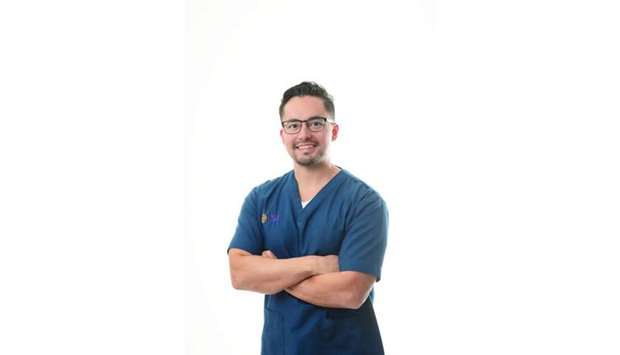Alfardan Medical with Northwestern Medicine (AMNM) is offering clinical exercise physiology services, a relatively new healthcare programme.
“It is a fascinating and developing profession that has recently been accepted and defined as an occupation. Clinical exercise physiology is concerned with the investigation of human physiological changes during physical activity and the delivery of treatment services to mitigate and prevent chronic disease,” said, Mark Willems, an exercise physiologist at AMNM.
At the moment, this specialty is available at AMNM, an ambulatory care centre that provides high-quality, multidisciplinary medical care, and patient service at Lusail.
Clinical exercise physiologists administer exercise testing and therapeutic training programmes for individuals with chronic health disorders, including but not limited to cardiovascular disease, pulmonary disease, and metabolic disorders. They use exercise as medicine to assist healthcare providers and patients to manage and reduce the risk.
Since exercise physiology is a new occupation, it can be easily confused with physical therapy. “Both professions are involved with physical activity and human kinetics so there is some overlap. However, an exercise physiologist might work more in conjunction with cardiology, pulmonology, and internal medicine whereas a physical therapist is more concerned with patient ambulation and treatment of acute orthopedic injuries and pain,” explained Willems.
In a typical appointment, the clinical exercise physiologist will obtain a patient’s medical history and administer exercise related tests such as an electrocardiogram, cardiac stress test and spirometry. They will also carry out assessments of body composition, muscular strength, endurance, flexibility, mobility, coordination and balance.
“ An exercise physiologist can consult with a patient to prescribe an exercise programme that will be relevant to their medical condition and desired health outcomes. The goal is to counsel the patient into adhering to an enjoyable lifestyle that includes habitual exercise. The main objective is improving aerobic endurance and whole-body strength in order to enable those with a chronic disease to live a full life and achieve management of their disease,” said Willems.
“There are great benefits of exercise; however, the greatest benefit of exercise may be that it is primary prevention of up to 34 chronic diseases and disorders. This includes ischemic heart disease, diabetes and cancer which are some of the leading causes of death around the world. Many chronic diseases need not be inevitable when physical activity is used as a therapy and treatment for prevention. Therefore, the role of an exercise physiologist, along with medical providers, in making physical activity assessment and promotion a standard in clinical care is so important,” he described.
Clinical exercise physiologists are commonly involved in cardiac and pulmonary rehabilitation, as well as bariatric clinics, stress testing departments and cancer rehabilitation.
At the moment, this specialty is available at AMNM, an ambulatory care centre that provides high-quality, multidisciplinary medical care, and patient service at Lusail.
Clinical exercise physiologists administer exercise testing and therapeutic training programmes for individuals with chronic health disorders, including but not limited to cardiovascular disease, pulmonary disease, and metabolic disorders. They use exercise as medicine to assist healthcare providers and patients to manage and reduce the risk.
Since exercise physiology is a new occupation, it can be easily confused with physical therapy. “Both professions are involved with physical activity and human kinetics so there is some overlap. However, an exercise physiologist might work more in conjunction with cardiology, pulmonology, and internal medicine whereas a physical therapist is more concerned with patient ambulation and treatment of acute orthopedic injuries and pain,” explained Willems.
In a typical appointment, the clinical exercise physiologist will obtain a patient’s medical history and administer exercise related tests such as an electrocardiogram, cardiac stress test and spirometry. They will also carry out assessments of body composition, muscular strength, endurance, flexibility, mobility, coordination and balance.
“ An exercise physiologist can consult with a patient to prescribe an exercise programme that will be relevant to their medical condition and desired health outcomes. The goal is to counsel the patient into adhering to an enjoyable lifestyle that includes habitual exercise. The main objective is improving aerobic endurance and whole-body strength in order to enable those with a chronic disease to live a full life and achieve management of their disease,” said Willems.
“There are great benefits of exercise; however, the greatest benefit of exercise may be that it is primary prevention of up to 34 chronic diseases and disorders. This includes ischemic heart disease, diabetes and cancer which are some of the leading causes of death around the world. Many chronic diseases need not be inevitable when physical activity is used as a therapy and treatment for prevention. Therefore, the role of an exercise physiologist, along with medical providers, in making physical activity assessment and promotion a standard in clinical care is so important,” he described.
Clinical exercise physiologists are commonly involved in cardiac and pulmonary rehabilitation, as well as bariatric clinics, stress testing departments and cancer rehabilitation.

